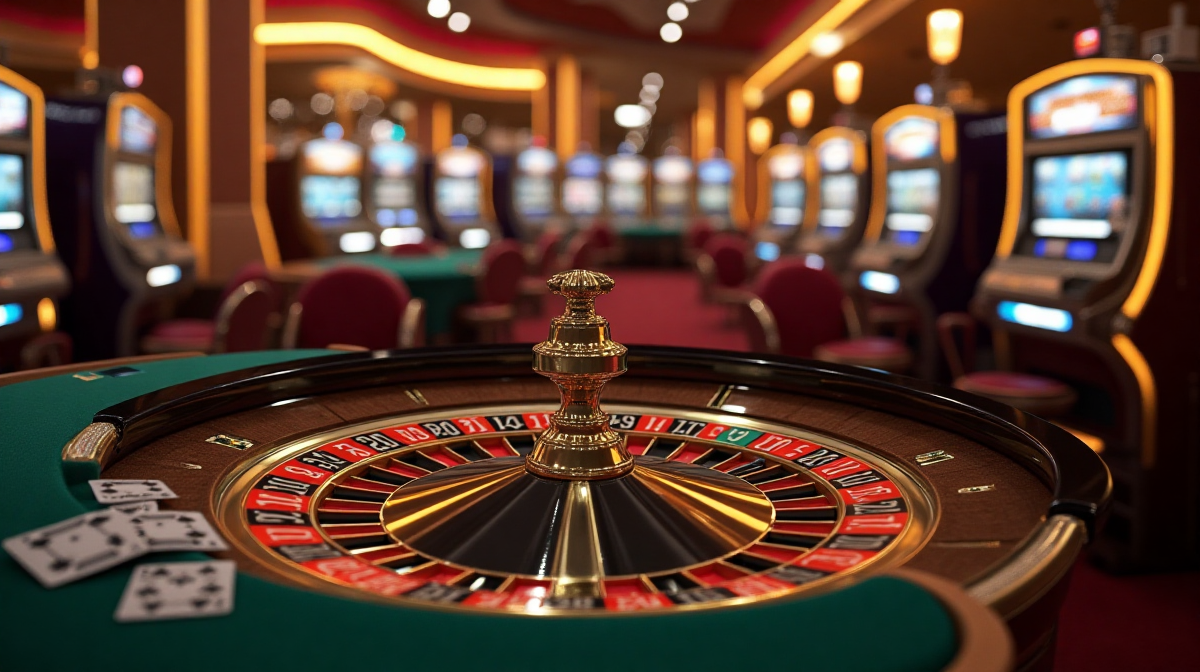Bet Number Prediction: Fact or Fiction?
The Allure of Predicting Numbers in Betting
Humanity has always been fascinated by the idea of predicting the future. This fascination extends to games of chance, whether it’s hoping for a lucky bet number in the lottery or attempting to predict the outcome of a sporting event. The potential for financial gain amplifies this desire, fueling a market for systems and services promising to unlock the secrets of winning. This article delves into the world of bet number prediction, examining the perceived facts, the stark realities, and the ethical concerns surrounding these claims.
Defining Bet Number Prediction - What Are We Talking About?
“Bet number prediction” is a broad term encompassing attempts to forecast outcomes across various gambling formats. This includes predicting winning lottery numbers, guessing the results of sports matches (and finding a profitable sporty bet number), and even aiming for success in casino games like poker games. Each area presents unique challenges, and the methods employed – and their purported effectiveness – vary significantly.
Brief Overview of Claims & Skepticism
Claims range from sophisticated statistical algorithms to esoteric methods like numerology. While some proponents boast impressive success rates, these often face intense skepticism from mathematicians, statisticians, and anyone familiar with probability theory. The core question remains: is reliable prediction possible, or is it merely a comforting illusion? Many are searching for a bet number today prediction that will guarantee winnings, but the reality is far more complex.
Statistical Analysis & Pattern Recognition
Many “prediction” systems rely on analyzing past data to identify patterns. This seems logical on the surface, but quickly runs into issues.
Hot & Cold Numbers – Do They Actually Exist?
The idea of hot and cold numbers – those frequently or infrequently drawn – is common in lotteries. However, in truly random systems, past events have no bearing on future outcomes. Each draw is independent, making the concept of hot and cold numbers statistically irrelevant.
Frequency Analysis & Recency Bias
Examining the frequency of numbers or events can reveal trends, but these are often coincidental. Recency bias – the tendency to overweight recent events – can lead to skewed interpretations and false positives. A seemingly consistent pattern may simply be a result of random fluctuations.
The Gambler's Fallacy & Why It’s Relevant
The gambler's fallacy is the belief that if a certain event hasn’t occurred for a while, it’s “due” to happen. This is demonstrably false in independent events. For example, after a series of red spins in roulette, the probability of black remains 50/50; the wheel has no memory. This impacts how people interpret seemingly meaningful data around a sporty bet number.

Mathematical Modeling & Algorithms
More complex approaches involve building mathematical models to predict outcomes.
Regression Analysis & Its Limitations in Random Events
Regression analysis attempts to establish relationships between variables. However, in truly random events, there are no meaningful relationships to uncover. Applying regression to random data will likely produce spurious correlations.
Machine Learning and AI - Hype vs. Reality
Machine learning (ML) and artificial intelligence (AI) are often touted as the future of prediction. While ML can identify patterns in data, it's only as good as the data it's trained on. If the underlying process is random, ML will simply learn to recognize randomness, not predict the future. The appeal of finding the perfect bet number through AI is strong, but the technology's abilities are often overstated.
Monte Carlo Simulations & Probability Calculation
Monte Carlo simulations can estimate probabilities by running numerous simulations. While useful for understanding potential outcomes, they cannot predict specific results with certainty. They show what could happen, not what will happen.
Numerology, Astrology & Other “Systems”
Beyond data-driven approaches, some believe in predicting numbers based on mystical or pseudoscientific methods.
Overview of these approaches and their core beliefs.
Numerology assigns meanings to numbers, astrology connects planetary positions to events, and other systems rely on interpretations of dreams, symbols, or intuition.
Examining the lack of scientific basis.
These approaches lack any scientific validation. Their claims are not testable or falsifiable, relying instead on subjective interpretation and confirmation bias.
Psychological factors driving belief in these methods.
Belief in these systems often stems from a desire for control, a need for meaning, and the human tendency to seek patterns even in randomness.
The Role of Randomness & True Chance
Underpinning the difficulty of prediction is the fundamental role of randomness.
Understanding Probability and the Law of Large Numbers
Probability governs the likelihood of events. The Law of Large Numbers states that, over a large number of trials, observed frequencies will converge on theoretical probabilities. But, this doesn't offer predictive power for individual events.
The Impact of Independent Events
Most betting scenarios involve independent events – meaning the outcome of one event does not influence the outcome of another. This makes prediction exceptionally challenging. Even in poker games where skill is a factor, short-term results are heavily influenced by chance.
Chaos Theory & Unpredictability in Complex Systems
Chaos theory demonstrates that even deterministic systems can exhibit unpredictable behavior due to their sensitivity to initial conditions. This applies to complex systems like sports, where countless factors can influence the outcome.
Bias & Cognitive Errors in Analysis
Human thinking is prone to biases that can distort our perception of patterns.
Confirmation Bias – Seeing Patterns Where None Exist
Confirmation bias leads us to seek out information that confirms our existing beliefs and ignore evidence to the contrary. This can lead to the illusion of finding patterns where none exist.
Survivorship Bias – Focusing on Successes, Ignoring Failures
Survivorship bias occurs when we focus only on successful outcomes, ignoring the countless failures. This can create a distorted impression of a system’s effectiveness.
The Illusion of Control
The illusion of control is the tendency to overestimate our ability to influence events. This can lead to overconfidence in prediction systems.
The Problem of Influencing Factors (Specific to Betting Type)
The factors impacting outcomes differ across betting types.
Sports Betting: Player Performance, Injuries, External Factors.
Sports betting is influenced by numerous variables: player form, injuries, weather, referee decisions, and more. While these factors can be analyzed, they introduce a high degree of uncertainty. Even with thorough analysis, pinpointing a sporty bet number is incredibly difficult.
Lottery: Truly Random Number Generation.
Lotteries are designed to be truly random, making prediction fundamentally impossible.
Casino Games: House Edge and Designed Randomness.
Casino games are engineered with a house edge, guaranteeing a long-term profit for the casino. Random number generators ensure fairness, but also make prediction futile.
Examining Case Studies & “Winning Systems”
Analyzing claims of successful prediction requires a critical eye.
Scrutinizing Reported Success Rates – What’s Being Measured?
Reported success rates are often misleading. They may be based on short timeframes, cherry-picked data, or flawed methodologies.
Identifying Potential Flaws in Methodology
Claims of success often lack transparency. Replicating the results independently is crucial, but frequently impossible.
The Problem of Sample Size
Small sample sizes can lead to statistically insignificant results. A few successful predictions do not prove a system’s effectiveness.
The Role of Luck vs. Skill
Distinguishing between genuine skill and luck is often difficult.
Distinguishing between genuine skill and favorable outcomes.
Skill plays a role in some forms of betting (like play poker), but luck remains a significant factor, especially in the short term.
The significance of Variance in Betting Results
Variance refers to the natural fluctuations in outcomes. Even skilled bettors experience losing streaks.

Beware of Scams & False Promises
The market for prediction services is rife with scams.
Recognizing Common Tactics Used by Prediction Sellers
Common tactics include exaggerated claims, testimonials from “satisfied customers,” and pressure tactics.
The Importance of Due Diligence
Thoroughly research any prediction service before investing. Look for independent reviews and be wary of guarantees.
Legal Implications of Selling Prediction Services
Selling false or misleading prediction services can have legal consequences.
Responsible Gambling
Protecting yourself from the pitfalls of gambling is essential.
The Risks of Chasing Losses
Chasing losses – attempting to recoup losses by increasing bets – is a dangerous spiral.
Setting Limits & Seeking Help if Needed
Set betting limits and seek help if you feel your gambling is becoming problematic.
Recap: The Balance of Fact and Fiction
While statistical analysis and mathematical modeling can provide insights into probabilities, they cannot reliably predict individual outcomes in games of chance. The allure of finding a winning bet number is powerful, but the reality is that randomness, cognitive biases, and external factors make accurate prediction exceedingly difficult.
Realistic Expectations for Betting & Investment
Approach betting with realistic expectations. View it as a form of entertainment, not a guaranteed path to wealth.
Focus on Informed Betting, Not Prediction.
Instead of seeking to predict the future, focus on making informed betting decisions. Understand the odds, assess value, and manage your risk responsibly.

